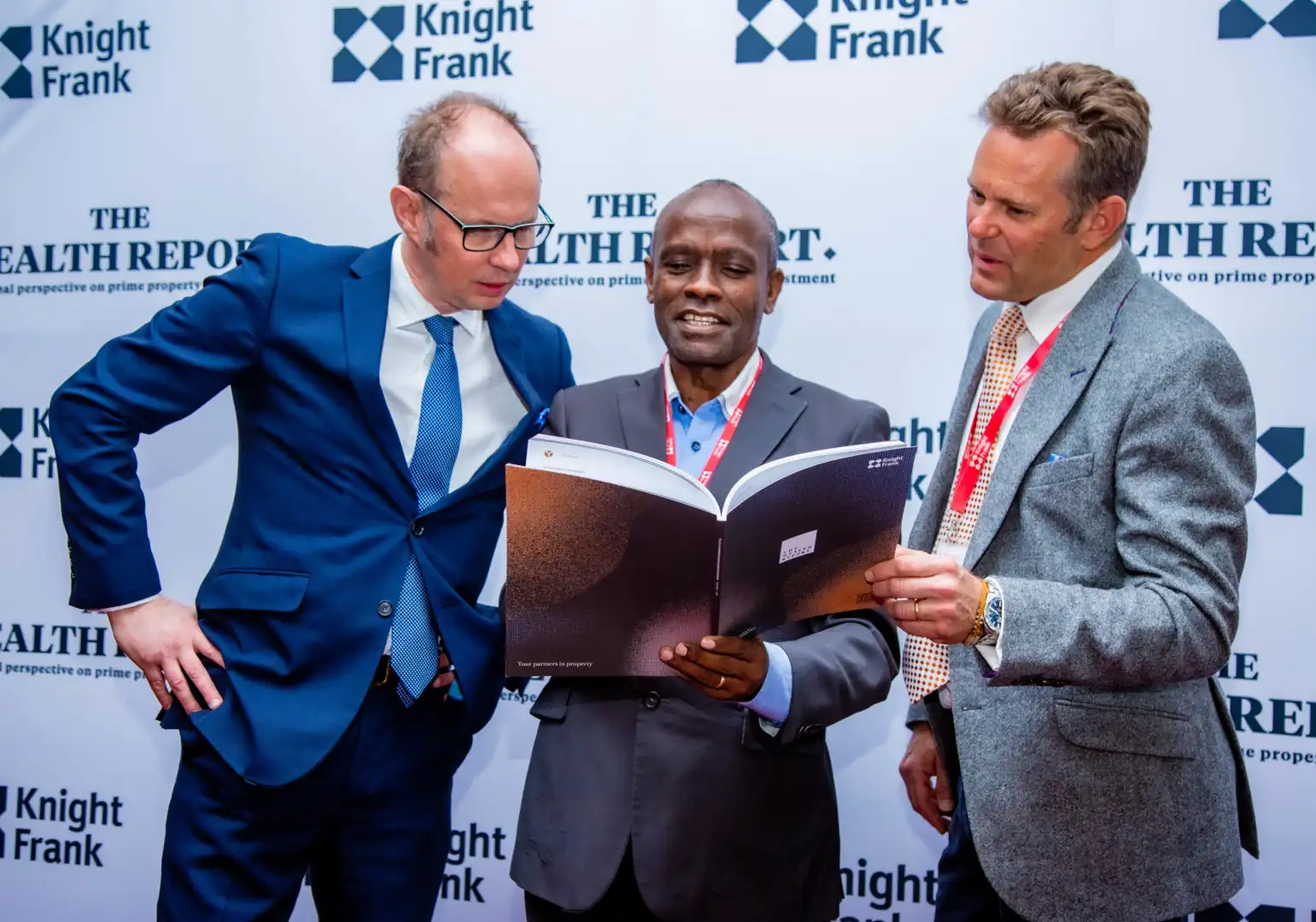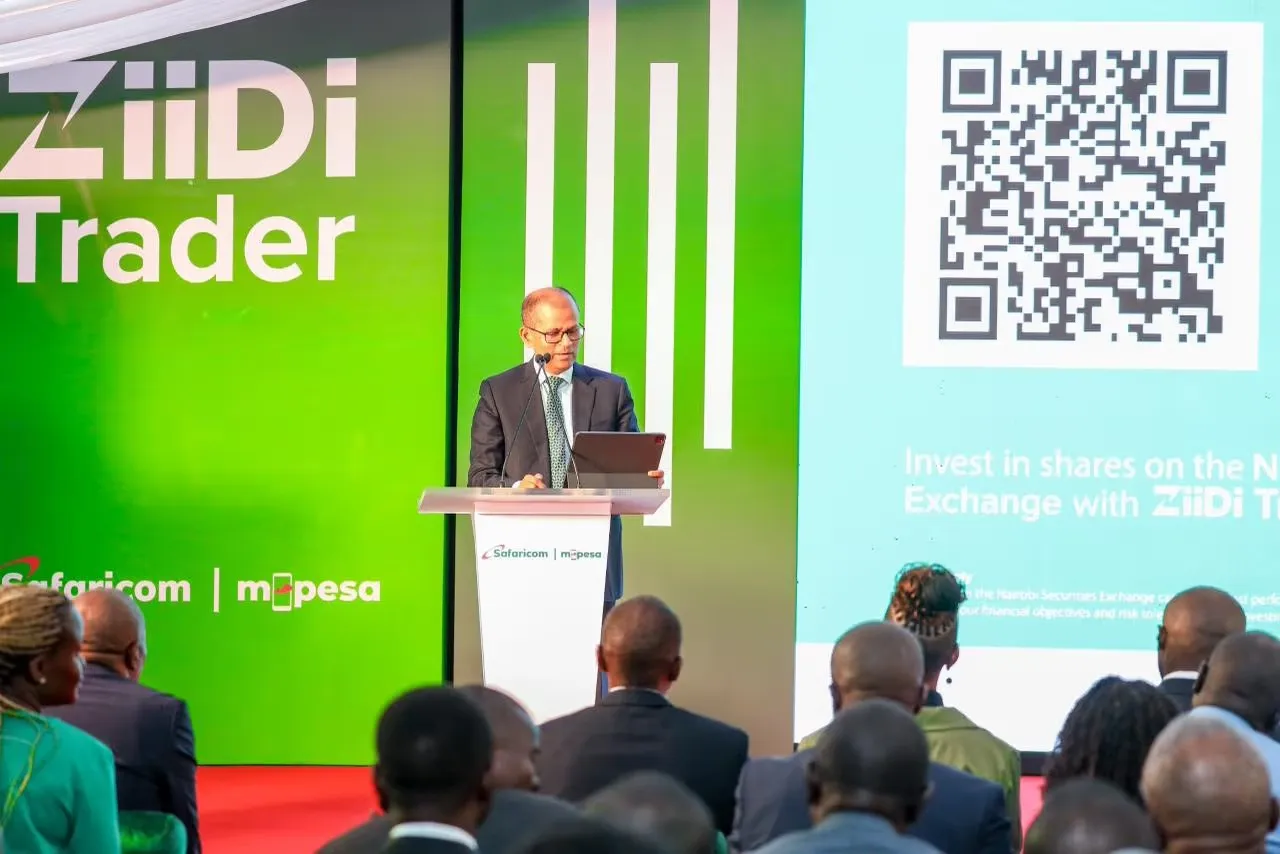Kenya’s affluent class is quietly rewriting its investment playbook. Once enamoured with flashy offshore property, luxury developments and the mining sector, High Net-Worth Individuals (HNWIs) are refocusing on locally anchored, high-return ventures—from agribusiness to data centres and logistics. This pivot reflects broader economic headwinds: Kenya’s GDP growth slowed to 4.7 percent in 2024 (down from 5.7 percent in 2023), signaling a need for more resilient, future-proof asset classes (The Star, Reuters).
Macroeconomic Backdrop: Slowing Growth Spurs Strategic Shifts
According to the Kenya National Bureau of Statistics, the economy expanded by 4.7 percent in 2024, below the East African Community average of 5.4 percent and down from 5.7 percent in 2023. Key growth drivers included agriculture, finance, and real estate, while construction and mining contracted—by 2.0 percent and 11.1 percent respectively—highlighting vulnerability in prestige-driven sectors (Reuters).
Parallelly, the Central Bank of Kenya (CBK) reported that total customer deposits reached KES 5.8 trillion by December 2023, yet only 1 percent of accounts held balances above KES 500,000, insured by the Kenya Deposit Insurance Corporation up to that threshold. This concentration—KES 5 trillion among the top percentile—underscores the widening wealth gap and the growing financial influence of Kenya’s ultra-wealthy (People Daily).
The Knight Frank Insight: A Data-Driven Look at HNWI Trends
In its Kenya Edition of the Knight Frank Wealth Report 2025, the global property consultancy surveyed over 150 family offices, revealing a decisive shift: 28 percent of respondents prioritized data centres and development land, while 17 percent ranked data-centre investments as their top choice, driven by Kenya’s booming digital economy and government mandates on data localisation (Knight Frank, GlobeNewswire).
Boniface Abudho, Knight Frank Kenya’s research analyst, noted, “With slower growth in traditional sectors, HNWIs are pivoting toward investments that deliver stable yields and long-term capital appreciation.” This realignment reflects an eagerness to align portfolios with global trends—digital infrastructure, agribusiness, and sustainable energy—while tapping into domestic growth catalysts.
Agribusiness & Farmland: Cultivating Food Security and Profits
Kenya’s agricultural sector contributed significantly to 2024 GDP and remains vital for both domestic consumption and exports. Wheat, tea, coffee, and horticultural produce command strong markets regionally and globally. Consequently, 83 percent of farmland investors in Knight Frank’s survey focus on food production, targeting high-value, export-oriented crops like avocados, macadamia nuts, and specialty vegetables (Knight Frank).
– Export Potential: Kenya’s horticulture exports reached USD 1.5 billion in 2024, with the EU and Middle East as primary destinations, thanks to improved cold-chain logistics and port infrastructure.
– Mechanisation & Value-Add: Investors are funding irrigation systems, post-harvest facilities, and processing plants to boost yields and shelf life, capturing greater margin inland and abroad.
– Impact and Sustainability: Agribusiness investments often incorporate outgrower schemes, benefiting thousands of smallholder farmers and aligning with Environmental, Social, and Governance (ESG) criteria—heightening appeal to development finance institutions.
Data Centres: Powering the Digital Economy
Kenya is fast emerging as East Africa’s digital hub. In 2023, the mobile ecosystem alone contributed KES 1.2 trillion to GDP and generated KES 212 billion in government revenues, according to GSMA forecasts. The rising tide of e-commerce, cloud services, fintech, and remote work is driving demand for secure, reliable data storage and processing facilities (Communications Authority of Kenya, trade.gov).
– Capacity Expansion: Existing data-centre power capacity in Kenya stands near 20 MW, with an anticipated additional 25 MW by end-2025; projections suggest a total of 150 MW by 2028, predominantly in Nairobi (GlobeNewswire, Business Wire).
– Key Players: Africa Data Centres, Digital Realty, Safaricom, Airtel Africa, MTN, and PAIX are leading the build-out, supported by government incentives such as tax breaks and streamlined licensing.
– Investor Appeal: Data-centre assets deliver long-term contracted cashflows (often USD-linked) and align with global ESG mandates—making them a favored target for pension funds, sovereign-wealth vehicles, and family offices.
Logistics & Industrial Real Estate: Streamlining Trade
A burgeoning middle class and expanding manufacturing base are fueling demand for modern logistics infrastructure. 15 percent of surveyed HNWIs are channeling capital into warehouses, distribution parks, and transport corridors, aiming to optimise regional supply chains (Knight Frank).
– Strategic Corridors: Projects along the Northern Corridor and Lamu Port–South Sudan–Ethiopia Transport (LAPSSET) Corridor promise seamless trade links from Mombasa port to landlocked neighbours.
– E-Commerce Boom: With online retail sales projected to surpass USD 1 billion by 2026, logistics hubs near urban centres like Nairobi, Eldoret, and Kisumu are in high demand.
– Public–Private Partnerships: The government’s concessions model for dry ports and inland container depots is attracting both domestic and foreign capital, ensuring project bankability.
Hospitality & Leisure: Betting on Tourism’s Rebound
Kenya’s iconic wildlife safaris and pristine coastlines have always been tourism magnets. 18 percent of wealthy investors now target hotel and leisure ventures—ranging from luxury lodges in the Maasai Mara to boutique resorts along the Indian Ocean.
– Recovery Trajectory: Tourist arrivals rebounded to 2 million in 2024 (up 15 percent year-on-year), with Europe, North America, and Asia-Pacific leading source markets after pandemic-era disruptions.
– Niche Offerings: Eco-lodges, wellness retreats, and community-based tourism projects are attracting premiums, driven by affluent travellers seeking sustainable, immersive experiences.
– Infrastructure Support: Ongoing upgrades to roads, airports (e.g., the new Terminal 1A at JKIA), and digital connectivity are enhancing accessibility and guest experience.
Student Housing & Urban Development
With Kenya’s youth population projected to exceed 40 million by 2030, urban university campuses face acute accommodation shortages. 15 percent of HNWIs are investing in purpose-built student housing, offering rental yields of 8–12 percent and strong capital appreciation prospects.
– Target Markets: Nairobi, Kiambu, and Nakuru host major public and private universities, creating demand clusters for off-campus housing.
– Financing Structures: Equity-debt blends and Real Estate Investment Trusts (REITs) are emerging as favored vehicles, aligning with CBK guidelines on real-estate lending.
– Social Impact: Purpose-built projects often include study lounges, skill-development centres, and career services—enhancing student welfare and employment outcomes.
Development Land: Capturing Urban Sprawl
Urbanisation and road-network expansion are lifting land values around Nairobi, Nakuru, and Naivasha. 28 percent of HNWI respondents earmarked development land for mixed-use projects—combining residential, retail, and light industrial components (Knight Frank).
– Infrastructure Catalysts: The completion of the Standard Gauge Railway and BRT corridors is unlocking suburban nodes like Syokimau, Ruiru, and Ongata Rongai.
– Planning & Permitting: Investors are teaming with county governments to pre-empt rezoning approvals and secure title regularisation—reducing land-banking risk.
– Exit Strategies: Joint-development agreements with national home-builders and REIT listings offer clear liquidation avenues for early-stage land plays.
Impact Investing & ESG: Beyond Pure Profit
Mark Dunford, CEO of Knight Frank Kenya, observes, “Modern investors seek not only returns, but also social and environmental legacies.” Indeed, many HNWIs are integrating ESG frameworks into due diligence—favoring projects with measurable community benefits, from clean-energy mini-grids to women-led agritech startups (Knight Frank).
– Green Finance: Kenya issued its first sovereign green bond in 2024, raising KES 15 billion for renewable energy and climate-resilient agriculture—signalling the government’s ESG commitment.
– Blended-Finance Models: Collaborations with the African Development Bank and IFC are structuring concessional debt to lower financing costs for smallholder irrigation and solar-hybrid microgrids.
– Transparency & Reporting: Investor demand is prompting firms to adopt international standards (e.g., GRI, SASB) and disclose metrics on water usage, carbon footprint, and community impact.
Risks & Challenges on the Horizon
Despite attractive yields, several headwinds warrant caution:
- Regulatory Uncertainty: Inconsistent county-level zoning rules and slow environmental permitting can delay projects by 6–12 months.
- FX & Interest-Rate Volatility: Kenyan-shilling depreciation and tightening monetary policy elevate hedging costs—potentially eroding local-currency returns.
- Security Concerns: Sporadic unrest in border regions and wildlife-conservation tensions can disrupt infrastructure and tourism ventures.
- Climate Vulnerabilities: Erratic rainfall patterns threaten agribusiness yields, underscoring the need for climate-smart farming and insurance solutions.
Conclusion: A New Chapter for Kenyan Wealth
Kenya’s wealthy elite are shedding prestige-only investments in favour of high-yield, impact-oriented ventures. From fertile farms to cutting-edge data centres, their capital is catalysing sectors that underpin economic diversification, job creation, and social progress. As HNWIs continue to deploy KES trillions into home-grown opportunities, they are charting a course that marries profitability with purpose—fueling Kenya’s growth story while leaving lasting legacies for future generations.
Ready to take your career to the next level? Join our dynamic courses: ACCA, HESI A2, ATI TEAS 7 , HESI EXIT , NCLEX – RN and NCLEX – PN, Financial Literacy!🌟 Dive into a world of opportunities and empower yourself for success. Explore more at Serrari Ed and start your exciting journey today! ✨
Photo source: Google
By: Montel Kamau
Serrari Financial Analyst
15th May, 2025
Article, Financial and News Disclaimer
The Value of a Financial Advisor
While this article offers valuable insights, it is essential to recognize that personal finance can be highly complex and unique to each individual. A financial advisor provides professional expertise and personalized guidance to help you make well-informed decisions tailored to your specific circumstances and goals.
Beyond offering knowledge, a financial advisor serves as a trusted partner to help you stay disciplined, avoid common pitfalls, and remain focused on your long-term objectives. Their perspective and experience can complement your own efforts, enhancing your financial well-being and ensuring a more confident approach to managing your finances.
Disclaimer: This article is for informational purposes only and does not constitute financial advice. Readers are encouraged to consult a licensed financial advisor to obtain guidance specific to their financial situation.
Article and News Disclaimer
The information provided on www.serrarigroup.com is for general informational purposes only. While we strive to keep the information up to date and accurate, we make no representations or warranties of any kind, express or implied, about the completeness, accuracy, reliability, suitability, or availability with respect to the website or the information, products, services, or related graphics contained on the website for any purpose. Any reliance you place on such information is therefore strictly at your own risk.
www.serrarigroup.com is not responsible for any errors or omissions, or for the results obtained from the use of this information. All information on the website is provided on an as-is basis, with no guarantee of completeness, accuracy, timeliness, or of the results obtained from the use of this information, and without warranty of any kind, express or implied, including but not limited to warranties of performance, merchantability, and fitness for a particular purpose.
In no event will www.serrarigroup.com be liable to you or anyone else for any decision made or action taken in reliance on the information provided on the website or for any consequential, special, or similar damages, even if advised of the possibility of such damages.
The articles, news, and information presented on www.serrarigroup.com reflect the opinions of the respective authors and contributors and do not necessarily represent the views of the website or its management. Any views or opinions expressed are solely those of the individual authors and do not represent the website's views or opinions as a whole.
The content on www.serrarigroup.com may include links to external websites, which are provided for convenience and informational purposes only. We have no control over the nature, content, and availability of those sites. The inclusion of any links does not necessarily imply a recommendation or endorsement of the views expressed within them.
Every effort is made to keep the website up and running smoothly. However, www.serrarigroup.com takes no responsibility for, and will not be liable for, the website being temporarily unavailable due to technical issues beyond our control.
Please note that laws, regulations, and information can change rapidly, and we advise you to conduct further research and seek professional advice when necessary.
By using www.serrarigroup.com, you agree to this disclaimer and its terms. If you do not agree with this disclaimer, please do not use the website.
www.serrarigroup.com, reserves the right to update, modify, or remove any part of this disclaimer without prior notice. It is your responsibility to review this disclaimer periodically for changes.
Serrari Group 2025
















